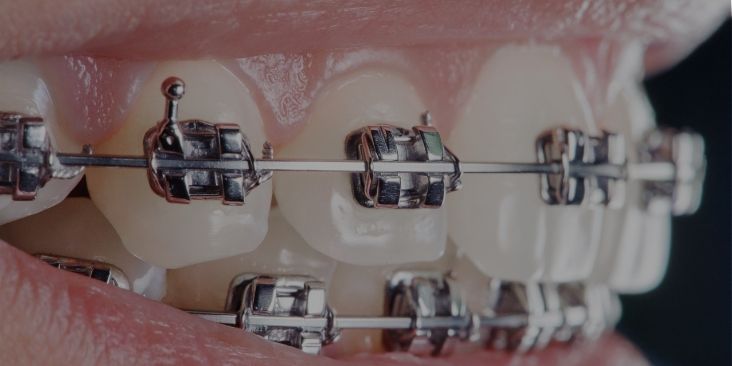Early Orthodontic Treatment: Braces for Young Kids
 Benefits of Interceptive Orthodontic Treatment
Benefits of Interceptive Orthodontic Treatment
Some orthodontic conditions are easier to correct if they’re detected early. Interceptive orthodontic treatment helps prevent more severe problems later and gives an orthodontist control over where the permanent teeth come in by addressing the structure of the jaw and teeth while baby teeth are still in the mouth. By age seven, your child’s mouth has grown and has enough structure to know how it will develop as the permanent teeth start to emerge. Dental Associates’ pediatric dentists are trained to identify bite issues at an early age and will refer a child to one of our orthodontists at the appropriate time.
Here are the benefits a Dental Associates orthodontist can provide with early intervention:
- Determine a better prognosis for how the permanent teeth will develop
- Correct habits that may be the cause of development problems, such as thumbsucking or tongue pushing
- Correct bite problems like an open bite, crossbite, or deep bite
- Guide the growth of the jaw to accommodate emerging teeth
- Lower the risk of damage to any protruding teeth
- Improve your child’s appearance and self-esteem
- Create a more pleasing and functional arrangement of teeth, lips, and face
- Alleviate future, and possibly more invasive, dental correction
Even if your child doesn’t need orthodontic treatment immediately, an orthodontic consultation will uncover how an orthodontist can help your child if future treatment is necessary.
Two-Phase Orthodontic Treatment for Children
If your child’s early orthodontic consultation concludes that treatment is necessary, we’ll take a two-phase approach. The first phase will begin immediately while your child still has most of their primary teeth. The second phase will happen as your child gets older and is determined by your child’s growth and corrective dental needs.
The first phase of early orthodontics treatment will do the following:
- Enable correct biting and chewing
- Correct harmful oral habits
- Intercept a developing problem
- Guide the growth of the jawbones that support the teeth so the teeth grow in straight and the jaw grows in the correct alignment
- Lower the risk of damage or breakage to protruding front teeth
- Guide permanent teeth into a more favorable position
- Establish long-term stability
- Improve appearance
The second phase, braces, will do the following:
- Move permanent teeth into their final positions
- Correct minor bite issues
- Continue improving teeth function and facial appearance
- Continue to increase child’s self-esteem
Orthodontic treatment and a child’s growth are meant to complement each other. By timing treatment to stages of dental development, your orthodontist can take advantage of your child’s oral growth and development. Problems that can be treated in a growing child may alleviate more drastic and invasive procedures needed later.
Conditions That May Require Early Orthodontic Treatment
A thorough orthodontic evaluation will reveal just how your child’s teeth and mouth are growing and will give the opportunity for your orthodontist to provide interceptive treatment.
These are the types of teeth and bite conditions that may be cause for early interceptive treatment:
- Open bites
- Deep bites
- Crossbites
- Overjets
- Crowding
- Spacing
- Teeth that don’t emerge in the right sequence
- Missing teeth
- Ankylosed teeth:
Request an Orthodontist Consultation
To see if early orthodontic treatment is right for your child, request a consultation below.
How to Pay for Braces Treatment
We have several options that help you reduce the cost of braces. For example, in addition to dental insurance, did you know you can pay for braces with your Health Savings Account (HSA) or Flexible Spending Account (FSA)? Read How to Pay for Braces to learn how we can help you!




